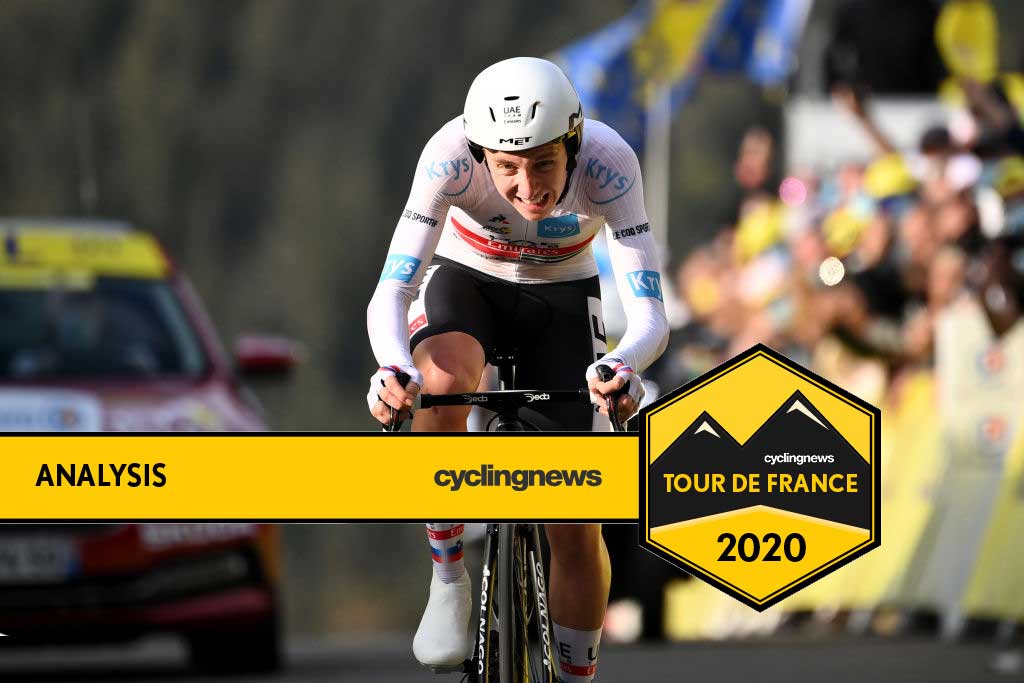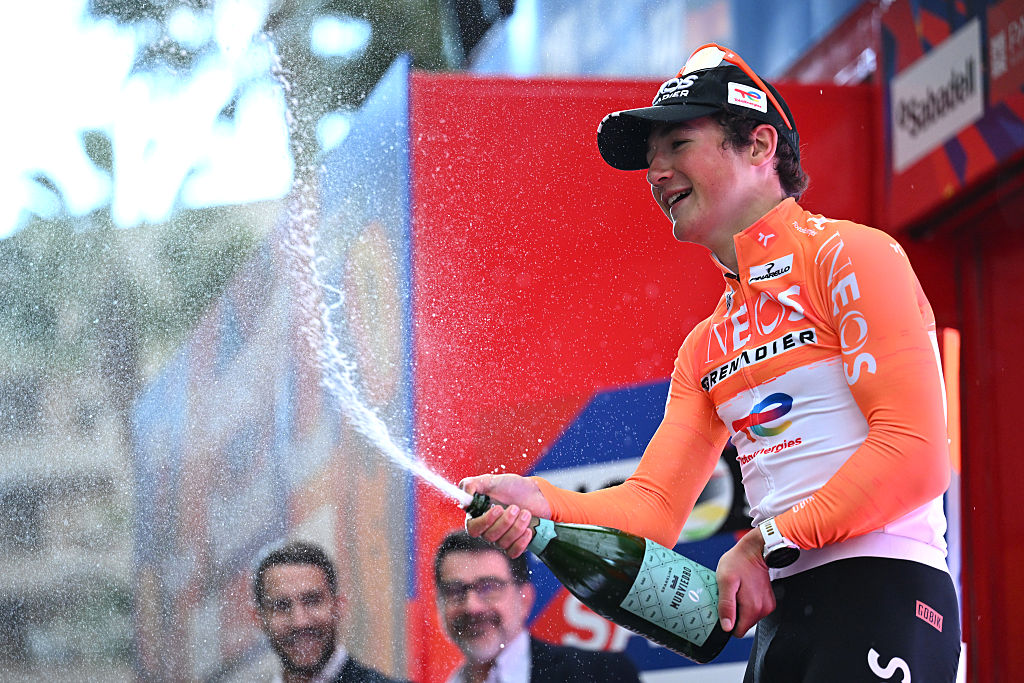Analysis: Where Tadej Pogacar won the Tour de France time trial
Sensational ride from the 21-year-old as Roglic fades

The latest race content, interviews, features, reviews and expert buying guides, direct to your inbox!
You are now subscribed
Your newsletter sign-up was successful
If the Tour de France's stage 20 time trial was a maths problem, Tadej Pogačar was a scholar, leaving scribbled formulas on the black tarmac in his wake as he traversed the 36.2km route from Lure along the rolling foothills in the Vosges mountains to the foot of La Planche des Belles Filles. A supercomputer compared with his abacus rivals, Pogačar out-calculated them at every metre.
The Tour de France would be won and lost on the finishing climb, most predicted, and the GC favourites would hold back something - or so we thought. It's no mean feat to perform a flat individual time trial over 30km then climb a category-1 mountain on a different bike.
At the first intermediate time check in Le Raddon after 14.5 flat kilometres, the UAE Team Emirates rider was already a surprising 13 seconds ahead of race leader Primoz Roglič (Jumbo-Visma) and only five seconds behind former time trial world champion Tom Dumoulin, Roglič's teammate.
Few of the other riders in the top 10 overall came close to the young Slovenian in those first kilometres: Richie Porte (Trek-Segafredo), on such a good day that he moved ahead of Miguel Ángel López (Astana) onto the final podium spot, was 31 seconds slower at that first check.
Aside from Roglič and Porte, the only riders within a minute of Pogačar at check 1 from that select group were Damiano Caruso (Bahrain-McLaren) – on a stellar ride that would move him into 10th overall at 14 seconds – Rigoberto Urán (EF Pro Cycling), Adam Yates (Mitchelton-Scott) and Enric Mas (Movistar).
The road tilted uphill, with riders cresting the Col de la Chevestraye before getting a brief respite ahead of the second time check in Plancher-les-Mines after 30.3km.
It was over that next 15.8km that Pogačar backed off just a touch. He put another 23 seconds into Roglič and 29 into Porte in addition to pulling back five seconds on Tom Dumoulin, who set the previous fastest time.
The latest race content, interviews, features, reviews and expert buying guides, direct to your inbox!
That second section was also where cracks formed into the rest of the top 10 overall. While Caruso and Urán held Pogačar to 34 and 39 seconds, respectively, Mas, Mikel Landa, Adam Yates, and Lopez all lost minutes in this section.
A record time up La Planche des Belles Filles
Pogačar appeared to have boundless energy as he first powered over those flat to undulating roads and then, after leaping off his aerodynamic time trial bike and onto a lightweight climbing machine and setting back off with a push from his mechanic, he never faltered.
The third time check came just 3.3km after the second, about halfway up the climb, but Pogačar really opened the gaps on the lower slopes: In the first section of the climb, he opened a gap of 37 seconds to Porte, 43 to Dumoulin and 59 more seconds over Roglič.
Such was his power over those three short kilometres, only Porte could keep the gap from growing more than half a minute. Porte was on an exceptional ride and lost just six seconds in the first part of the climb but the rest fared much, much worse.
Roglič lost 46 seconds – part of which came from a poor bike change. Pure climbers like Mikel Landa lost 37 seconds and Lopez, an exceptional climber and winner of the stage on the Col de la Loze? He gave up 1:47!
The second part of the climb was not much better for Pogačar's rivals. Porte faded, losing 16 seconds, Roglič bled another 35, and Lopez – who enjoyed hopes of standing on the podium in Paris – was exsanguinated by another 57 seconds.
So consistently superior was Pogačar that he broke the record for La Planche des Belles Filles and that was with the bike change coming after the second time check. He put time into time trial specialists like Dumoulin mainly on the climb and time into climbers like Porte on the flats.
Most importantly, he put 1:21 into Roglič on the Planche des Belles Filles – the exact amount of time he lost in the crosswinds on stage 7.
It only took him 13 stages of consistently good performances, including two stage wins, but Pogačar finally found the winning formula and reversed his fortunes to win the Tour de France.

Laura Weislo has been with Cyclingnews since 2006 after making a switch from a career in science. As Managing Editor, she coordinates coverage for North American events and global news. As former elite-level road racer who dabbled in cyclo-cross and track, Laura has a passion for all three disciplines. When not working she likes to go camping and explore lesser traveled roads, paths and gravel tracks. Laura specialises in covering doping, anti-doping, UCI governance and performing data analysis.
